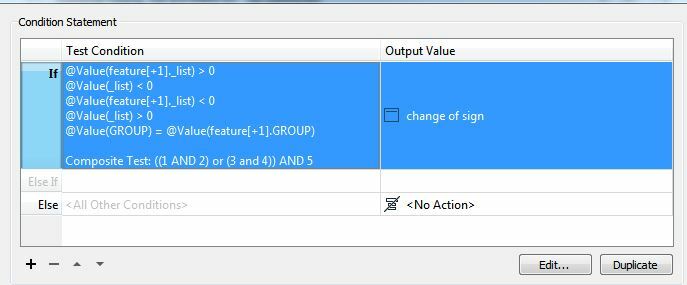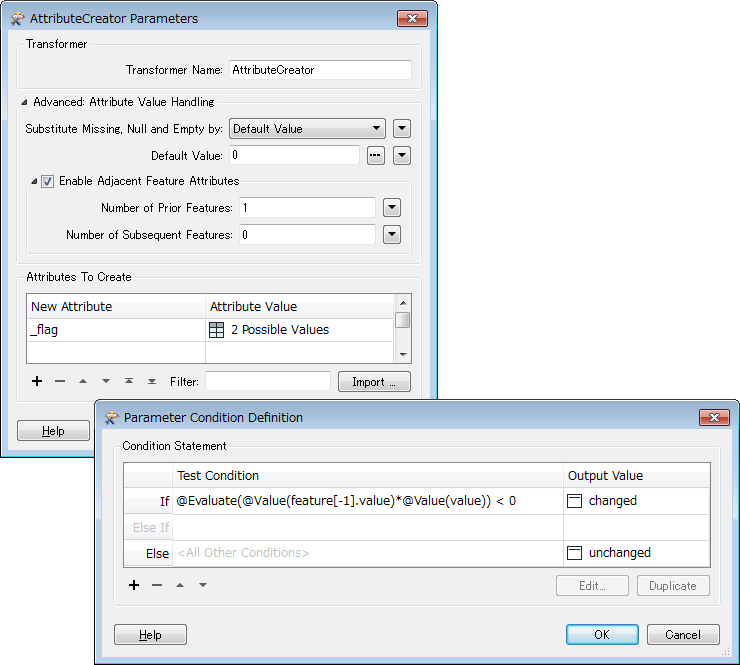I have some ordered features that contain a value, and I need to identify the inflection points, ie the feature where the sign (+/-) of the attribute value changes compared to the previous feature
ex. features have values [2,3,1,-2,-1,1,3] the inflection points would be features 3 and 5
For added entertainment there is another attribute containing a common ID, and I need to break on that value.



















